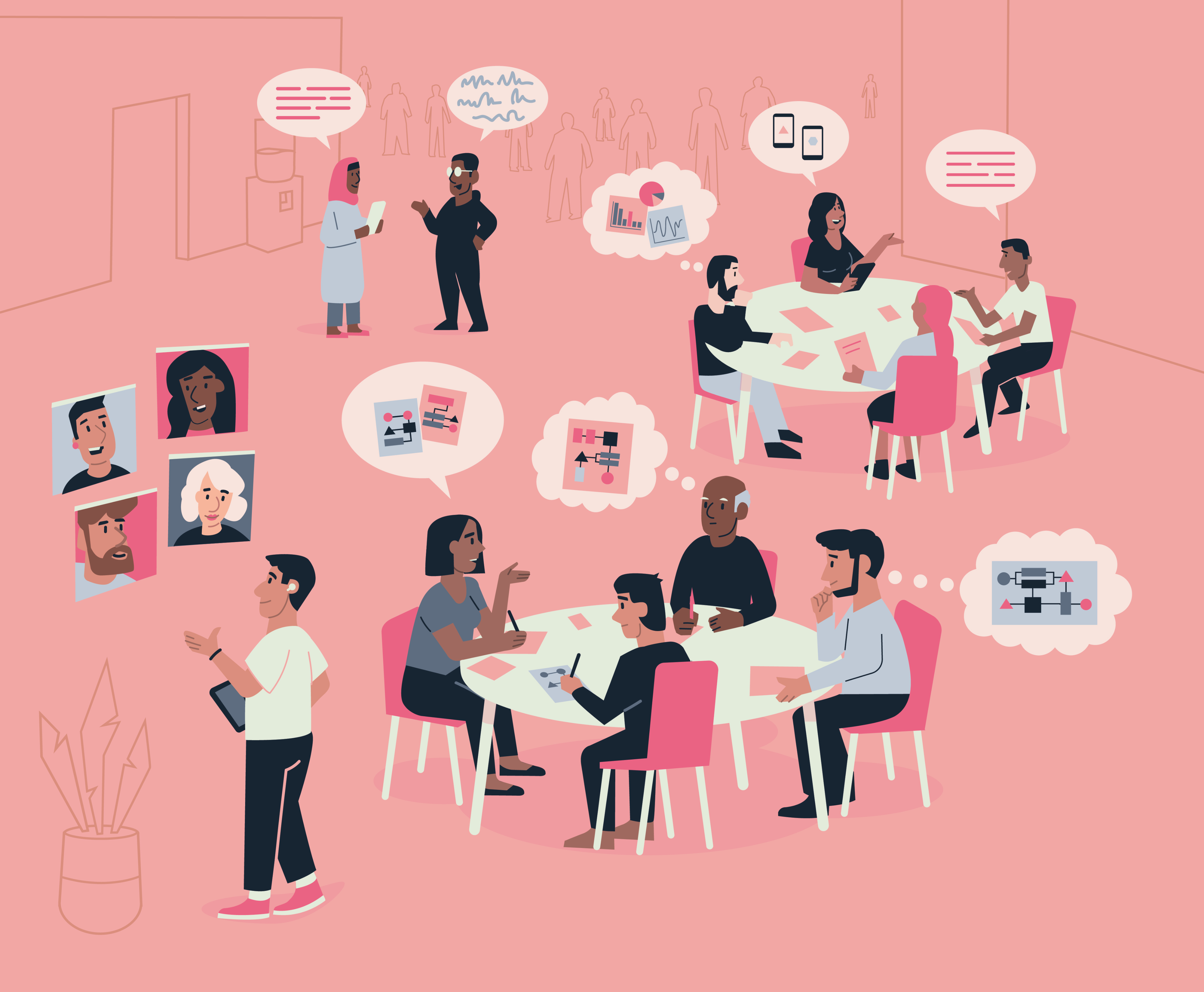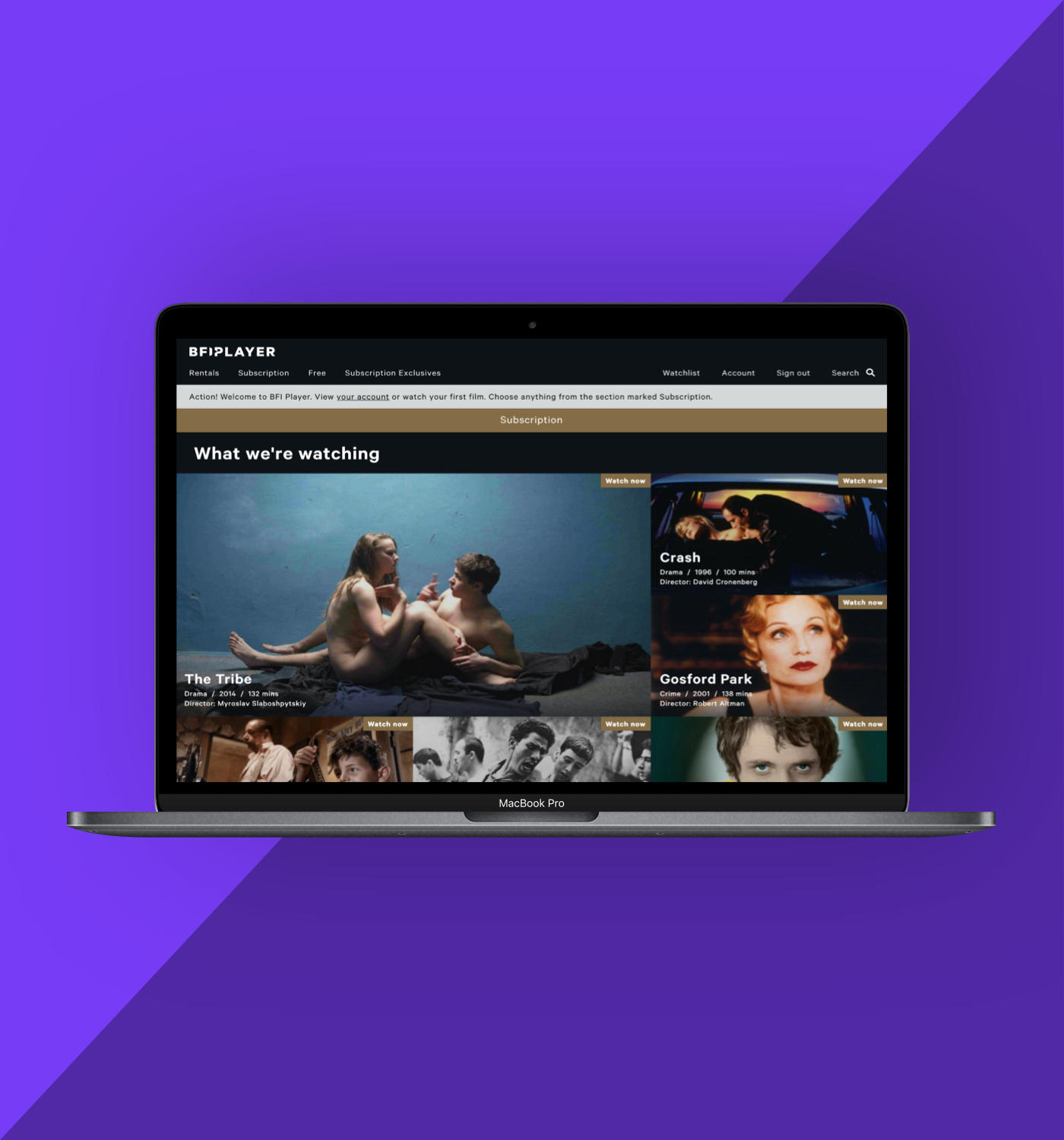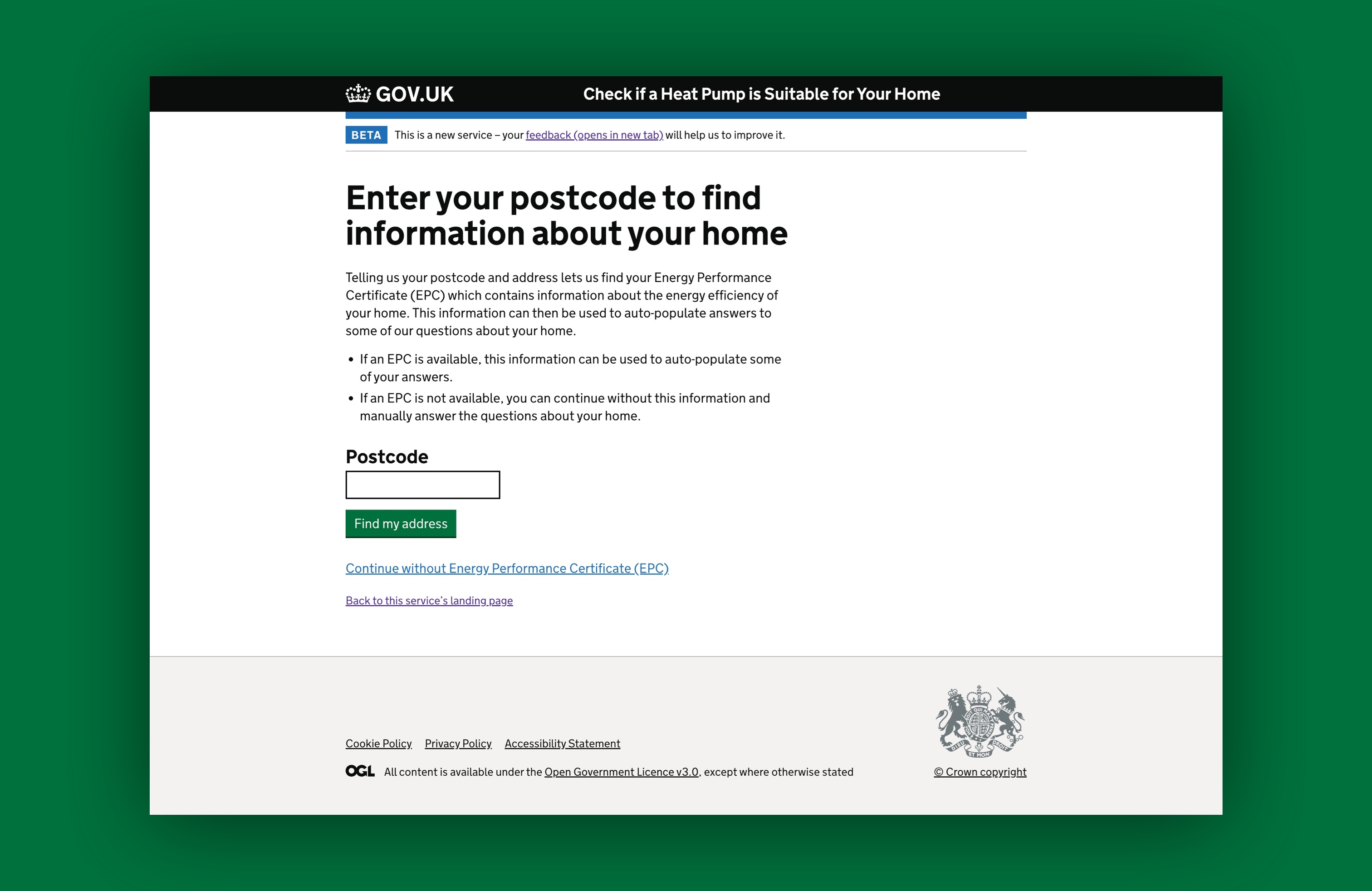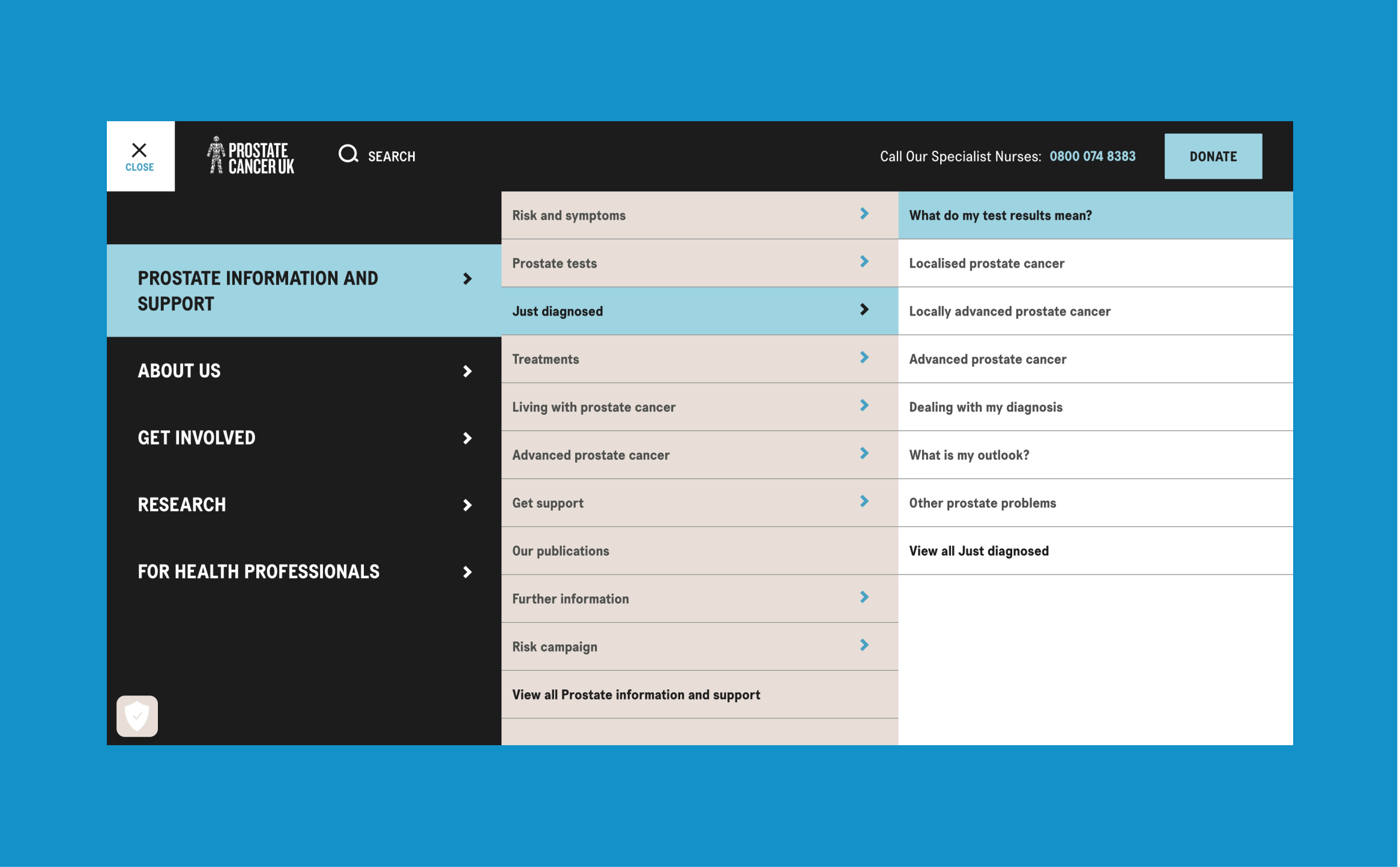Trainer workshop facilitation for the National Data Science and AI Institute
The Alan Turing Institute
What they needed
Launched by the Alan Turing Institute in 2020, the Turing Commons project is an online platform to support open dialogue and reflection about the responsible design, development, and deployment of data-driven technologies. It provides open-source information to help individuals, businesses and researchers in academic organisations to produce ethical AI and data-driven technologies. Among the resources they produce are guidebooks for running practical workshops and activities, illustrations to support visual communication, and case studies to help anchor critical reflection and deliberation.
As the Turing Commons scales, the project has required a redesigning of the approach to delivering workshops and shifting towards a “train-the-trainers” model, where subject-matter experts can deliver training using the Turing Commons resources and guidance.
To ensure that the newly designed workshops would be delivered to the required standard, they first wanted to set the precedent as to how to best run a workshop.
To do this, the Turing Commons partnered with two CDTs (Centres for Doctoral Training): AI for the study of Environmental Risk (AI4ER) at the University of Cambridge, and Biomedical AI at the University of Edinburgh.
They worked with their PhD students to revise and redesign some of the workshop’s content, co-create case studies, and hold a final workshop where the new materials would be trialled. Each workshop would be attended by around 20 PhD students from the respective CDTs, who were also interested in data science and AI ethics & governance.

What we did for them
Fruto’s UX designers were invited to observe an upcoming session at the University of Cambridge so that we could redesign the workshop and run a later session taking place at The University of Edinburgh and produce a Facilitator Guide on how to run and evaluate future workshops.
Throughout the project, we delivered a number of key outputs, including:
Reviewing existing materials and how the workshops were facilitated, producing a report to detail our findings and recommendations
Planning - and later running - the Edinburgh workshop by applying our learnings and observations from the Cambridge workshop
Producing a set of guidelines and reusable templates on how to best choose resources, activities and facilitate future workshops

Workshop Observation (& Facilitation)
The first workshop took place at the University of Cambridge and provided insight into how the sessions were run, the type of information that was covered, and the overall presentation and facilitation style of the trainers delivering this type of workshop.
Workshop observations
Some of the critical points that we were looking to understand were:
The level of participant engagement in the sessions
How well the participants understood the course material
What the facilitators did and how they interacted with participants
Whether presenters needed to (re)explain anything about the project that might impact participants’ ability to re-run the session with other facilitators
Our observations of this workshop suggested that although the presentation side only required minor improvements (slides and length) there were a number of high-impact yet easy-to-implement changes that could be made to the facilitation aspects.
For example, although people were engaged, there were no takeaways or “outcomes” for them to put into action to help remind them of the course content, and the structure of the day meant there was little opportunity to discuss ideas that came up on any of the topics covered due to time constraints.
The manual feedback mechanism was also identified as an area in need of improvement as it added further time to the end of an already long day.
The second workshop took place at The University of Edinburgh a few weeks later, which provided us with the opportunity to work with the Turing Common’s team to implement a number of the suggestions made on the basis of the Cambridge workshop.
As the Edinburgh session had a different classroom setup (as well as covering a different topic), we captured further insights into what would be the ideal environment for the workshops to be conducted in.
Having the same facilitators attend both workshops meant we could better understand how effective the recommendations made after the first workshop were when implemented. Experiencing the changes first-hand also allowed us to further refine the guidance we were to provide in our final report, especially when combined with the participant feedback after the second workshop.
Facilitators Guide
Once our observations were complete, we collated all the tips and insights from across the two days into a single, revised Facilitators Guide, which we further expanded on to provide industry know-how to help close knowledge gaps and formalised the evaluation method into a reusable template with instructions on how to run evaluations in the future.
This guide included advice on how to best choose resources and activities for future workshops, as well as how to facilitate them and to organise and package them for ‘scalability’ and online delivery.
As the specific contents would vary from workshop to workshop, the guidelines focused on the facilitation and logistics (rather than the course content and presentation skills), providing a template that could be populated by the presenter depending on the course topic and location of the workshop they were delivering.
As UX and Service Design specialists, running workshops and co-design activities is Fruto’s bread and butter. Our experience in designing digital products for emerging technologies such as AI, machine learning and big data also meant that we didn’t get overwhelmed by the amount of technical jargon and ethical information contained in the workshop materials being delivered.
Results
With ethical design and use of Data Science, AI and other emerging technologies being so crucial to shaping the digital future, ensuring that there are effective resources available to help develop the skills and knowledge needed to be a responsible data scientist, data engineer, or data science leader is especially important.
Fruto’s ethos is to work on projects that make a positive contribution to society, so we’re especially proud that we’ve been able to contribute - albeit in a small way - to such an important project and public resource.
The Alan Turing Institute found Fruto’s experience to be invaluable on this project and are now seeking partners to help implement the next stage of the project, helping to pilot the new train-the-trainer approach and materials.
We found it really useful to have an external set of eyes look at the way things were delivered - especially when they could point to materials that were too complicated and needed simplifying or the way things were phrased.
The facilitation tips and insights provided by Fruto’s designers were really useful - especially translating them into a reusable, template format that can be easily adapted to each workshop.
The ideas around the use of icebreakers and other participant engagement methods are also something that we’re looking forward to putting into practice in future workshops as we saw how much they helped in making participants feel more comfortable sharing their ideas and collaborating with one another.




